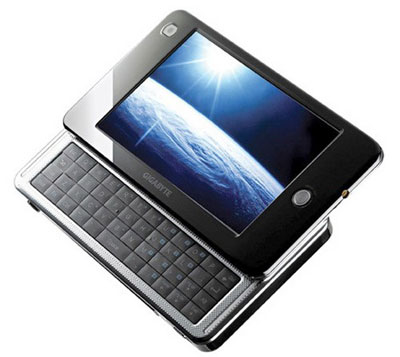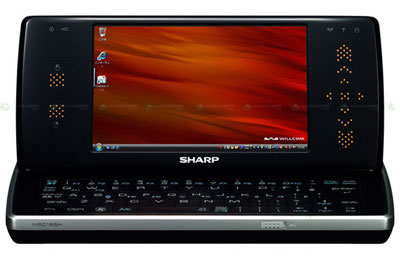Will the MID platform take off as Intel hopes?
Here at HEXUS, we're as eager to get our hands on an Atom-powered mobile internet device (MID) as the rest of you. We've openly admitted that 2008 is the year of the Intel Atom, and when MIDs from the likes of Sharp and BenQ begin to surface, we duely take note.
So, the MID hype-machine is well underway, but has the promise of small, light and inexpensive hardware been lost along the way?
Intel's Atom chips measure in at around 25mm² in size and are extremely cheap to manufacture, ingredients which we believe should result in well-spec'd mobile devices at low prices, right? Well, maybe not, early Atom-powered MID and UMPC pricing suggests otherwise.
First up, is the Gigabyte M528, a MID with an 800MHz Atom CPU, 512MiB of RAM and an 8GiB SSD. Australian retailer, Tegatech, had previously offered the Gigabyte MID for pre-order at a price of AU$1,199, that's roughly £580. The pre-order has since been removed, and Gigabyte has stated that there is "no pricing structure set for the Gigabyte M528 yet", but early signs aren't looking good.

Then there's a similar device from Aigo. It's MID also packs an 800MHz Atom CPU, and is rumoured to retail between HK$6,000 to 8,000. That's slightly better at around £400 to £530, but still worrying when you consider the price conversion is never that straight forward.
Atom-powered UMPCs, which are essentially MIDs running Windows, don't appear to offer the low-cost mobility we'd hope for, either. Sharp's D4 WS016SH, pictured below, is a Japan-only device that'll retail for ¥128,600 (approximately £644).

In a similar vein, Fujitsu's forthcoming Atom-powered UMPC, the U2010, is said to retail at approximately $1,300 when it lands in July. That, then, would make it roughly £670 on our shores.
While these prices are all still subject to change, they aren't filling us with hope early-on. Once Intel officially launches its Atom processors, we're expecting it to rain, if not pour, MIDs and UMPCs from many manufacturers. But, will they hit prices to make them appeal to your everyday consumer?
With low-cost, albeit bigger, Atom-powered alternatives to soon be available in the form of ASUS' Eee PC and MSI's Wind, MIDs and UMPCs still have it all to do in 2008.













